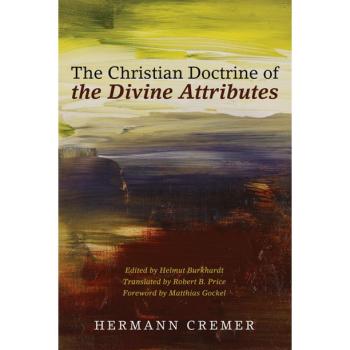Lectionary Reflections
Revelation 7:9-17
November 2, 2014
All Saints Sunday
Since this column has for some four years now been called "Opening the Old Testament," you are probably wondering, "Does not that fool Holbert know that the Revelation of John is most decidedly not in the Old Testament?" Well, yes, he does know that, but did you know (my clever and defensive rejoinder) that there are over 500 references to the Hebrew Bible in the last book of the Bible? Whoever the author was, he was clearly not the John who wrote the Gospel of John, or if he was his grasp of Greek grammar had certainly slipped in the interim between the two books. The Greek of the Revelation has been called "weak" by some and downright slipshod by others. Still, it is All Saints Day (you know, the religious thing after the spooky and candy-laden revelry of Halloween), and Revelation has a good bit to say about saints, so I, Hebrew Bible guy that I am, am going to spend a day on the Revelation of St. John the Divine, to give its full and richer sounding title.
However, in doing so, I simply must attempt to dispel some of the myths that surround this book. There are far too many such foolish notions about the thing that one column will hardly suffice, but here goes.
- If you have heard the book called "Revelations," or if you have called it that, you and they are wrong. The opening word of the book is the singular noun "revelation." More literally, the word means "unveiling," a revealing of something that has heretofore been hidden. The book purports to reveal something that all must know. What that something is is the reason for the writing.
- It was written by a man named John (a name as common then as it is now) who was spending some time on the lovely island of Patmos, a few miles off the coast of modern Turkey. But in that John's day, it was not so lovely a place. It was in fact a Roman prison where the Romans sent persons, or certainly this person, to get him out of the way, to isolate him from the Roman populace. Why? John's answer is that it is "because of the word of God and the testimony of (or to) Jesus" (Rev. 1:9). In short, John was a Christian, and a preacher, and the Romans late in the first century were very leery of both. After all, in the sixth decade of the first century they had executed both Paul and Peter in Rome, and several Roman emperors had persecuted Christians throughout the empire, beginning with Nero up to Domitian at the end of the century (though thre remains debate about whether the latter was in fact a real persecutor at all). Rome saw people like the Christian preacher John as seditious and dangerous to proper order, so they sent him to Patmos.
- On the island John claims to have had a vision in a cave (when you go to Patmos, the cave is clearly marked as John's cave of the revelation; that information has about as much factual truth as the latest article in Wikipedia). It is, he says, a revelation of Jesus Christ, who tells him, in a trumpet-like voice, with a snow-white head of hair, flaming eyes, bronze feet, and dressed in a long robe with a golden sash across his chest, "Write what you have seen, what is, and what is to take place after this" (Rev. 1:12-19).
- And because of those words, "what is to take place after this," hundreds of kooks and mountebanks down the centuries have had a go at "what is to take place after this." From Joachim of Fiore to John Hagee, anyone can have a go at what that "after this" might mean. Let me be as clear as I can be about all this nonsense: it is just that—nonsense. Revelation is most assuredly not about Russia and China, the European Common Market, the selling tags on Procter and Gamble soap products, the Rapture at the end of days, the saving of the few and the damnation of the many, the need for the state of Israel to exist in order to ensure that when Jesus returns to Jerusalem there will be some Jews who will either choose to become Christians or will join all unbelieving Christians and others (a short list includes Roman Catholics, Methodists, Presbyterians, Disciples of Christ, Mormons, all Muslims, Buddhists, Sikhs, etc., etc, some three billion or so of the world's people) in the lake of fire while the chosen few thousand will sing loud hymns of praise while they watch their fellow humans writhe in agony for all eternity. If you think this is caricatured, you have not listened to John Hagee of San Antonio, and now his son, expound the meaning of the Revelation for you.
- Revelation is in fact about one thing: God wins and the powers of evil lose. And at the end of all things, God will make "all things new," not "all new things." Hence, all will live in a vast city together, Jews and Christians and Muslims, and all others. Even the once nasty kings of the earth will find their place there. Yes, even John Hagee and his son, who will be very surprised to see who their neighbors will be! There will be finally no sun or moon (those objects made on the fourth day of creation in Genesis), because God and the lamb will be all the light that everyone needs. Crying and pain and sorrow will be gone. In short, the world will eventually be what God had in mind for it at the very beginning, a place of order, structure, design, a place ruled by love.
- The key to the whole thing is found in the astonishing Revelation 5. John in his vision is wafted into heaven, and there looks in vain for someone who is worthy to open the scroll of the book of the meaning of life. "I began to weep bitterly because no one was found worthy to open the scroll or (even) to look into it" (Rev. 5:4). But one of the heavenly elders comforts him, urging him not to weep, because "the Lion of the Tribe of Judah, the root of David, has conquered, so that he can open the scroll and its seven seals" (Rev. 5:5). But when John gazes around the throne room of God, instead of seeing a lion, a massive creature of power and fearful strength, he sees a lamb, "standing as if it had been slaughtered" (Rev. 5:6). The lamb takes the scroll, and after suitable praise from the heavenly choir, he proceeds to open the scroll and its seals. And what, pray tell, does all that mean? The key to the purpose of God's life for the world does not consist of power; conquering does not mean victory in any traditional sense. It means that the slain lamb is the key to life's meaning.
- Hence, those who find in John's Revelation scenes of blood and doom and destruction have not read the book for the metaphorical writing that it is. The key to life is service, a service that may lead to suffering and giving and dying. Little wonder that the Romans did not want John mouthing such things into a Roman world built on the pax romana, a "peace" insured by armies and fighting and glorious death. The Revelation of John contradicts the Roman view of the world at every turn, so John was sent to prison to shut him up.





